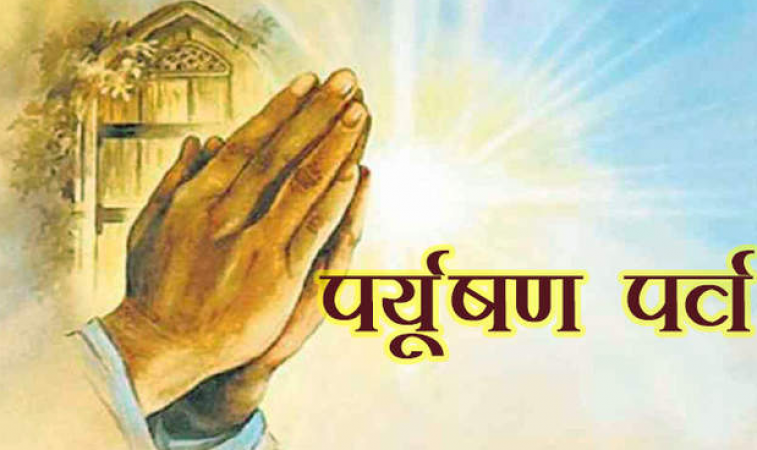
Paryushana, also known as Paryushan Parva or Daslakshana, is one of the most important religious festivals celebrated by the Jain community. This significant observance spans over eight or ten days, depending on the sect and tradition, and holds deep spiritual and philosophical significance. In this article, we will delve into the history, significance, and rules of Paryushana, exploring the essence of this festival that promotes self-reflection, repentance, and spiritual growth.
History of Paryushana:
The roots of Paryushana can be traced back to the times of Lord Mahavira, the last Tirthankara (spiritual leader) of Jainism. Lord Mahavira lived in India during the 6th century BCE and imparted profound teachings on non-violence, truth, and compassion. Paryushana emerged as a commemoration of his final retreat, where he engaged in intense meditation and self-reflection for ten days.
During this period, Lord Mahavira achieved a state of supreme enlightenment known as Kevala Jnana. Paryushana, therefore, symbolizes the journey of an individual's soul toward self-realization and liberation from the cycle of birth and death (samsara).
Significance of Paryushana:
Self-Reflection and Repentance: Paryushana provides an opportunity for Jains to introspect, reflect upon their actions, and seek forgiveness for any harm caused intentionally or unintentionally to other living beings. It emphasizes the importance of self-purification through deep contemplation and genuine remorse.
Right Conduct and Spiritual Discipline: Paryushana encourages followers to adhere to the principles of Jainism, particularly the Five Vows: Ahimsa (non-violence), Satya (truthfulness), Asteya (non-stealing), Brahmacharya (chastity or celibacy), and Aparigraha (non-attachment). It serves as a reminder to practice these virtues in daily life and strengthen one's spiritual discipline.

Scriptural Teachings and Discourses: During Paryushana, Jain temples organize religious discourses and lectures by learned scholars. These sessions focus on the scriptures and teachings of Lord Mahavira, providing spiritual guidance and deepening the understanding of Jain philosophy.
Fasting and Austerity: Paryushana involves various forms of fasting and austerity practices. Many Jains observe a strict fast, abstaining from solid food, and consuming only water or limited liquids for varying durations. The purpose of fasting is to discipline the senses, control desires, and redirect focus toward spiritual pursuits.
Rituals and Ceremonies: Paryushana witnesses several rituals and ceremonies that highlight the reverence towards the Tirthankaras and the teachings they imparted. Devotees engage in prayer, recite scriptures, perform rituals at temples, and engage in acts of charity, thereby expressing their devotion and gratitude.
Rules and Observances of Paryushana:
Eight or Ten-Day Observance: Paryushana is typically observed over eight or ten days, depending on the sect and tradition. The festival begins on the 12th day of the bright half of the month of Bhadrapada (August-September) in the Hindu calendar.
Samvatsari: The final day of Paryushana is known as Samvatsari, which holds immense importance. On this day, Jains seek forgiveness from one another by uttering the phrase "Micchami Dukkadam," which translates to "May all the ill that has been done be forgiven." This act of seeking forgiveness promotes harmony, reconciliation, and the restoration of broken relationships.
Austerities and Fasting: Paryushana is characterized by the practice of various austerities and fasting. Some devotees observe a complete fast for one or more days, while others practice partial fasting by consuming only one meal a day. These practices symbolize detachment from worldly desires and foster spiritual growth.
Reading and Recitation: During Paryushana, Jains engage in the recitation and study of sacred texts, including the Pravachanasara, Kalpa Sutra, and Tattvartha Sutra. These texts expound upon the core principles of Jainism, providing spiritual nourishment and guidance.
Meditation and Reflection: Paryushana encourages devotees to engage in meditation, self-reflection, and contemplation. The aim is to attain a state of equanimity and detachment from worldly distractions, allowing for a deeper understanding of the true nature of the self and the universe.
Paryushana stands as a remarkable festival that encapsulates the core principles of Jainism: non-violence, truth, and spiritual discipline. It serves as a time for introspection, repentance, and self-purification, fostering personal growth and harmony within the Jain community. Through fasting, austerity, and sincere devotion, Jains aspire to transcend the limitations of the material world and attain spiritual enlightenment. Paryushana offers a profound opportunity for individuals to reconnect with their inner selves, seek forgiveness, and embark on a journey of spiritual transformation.Know about the roots of the ancient religion of India
Gomateshwara Temple: Monolithic Statues
The Significance of Bells in Temples: Unveiling Their Musical Charm